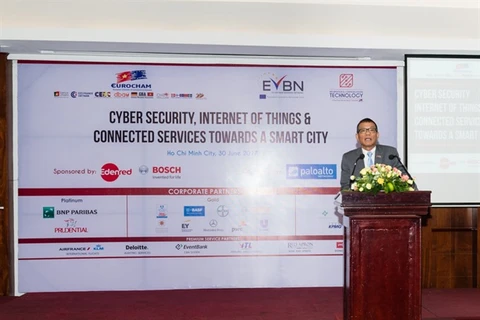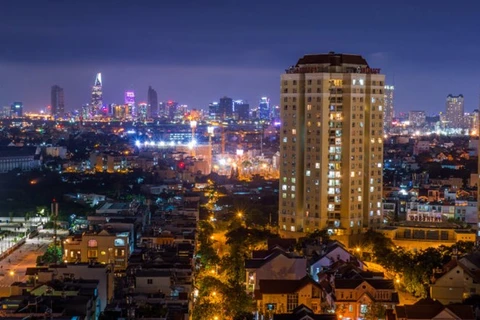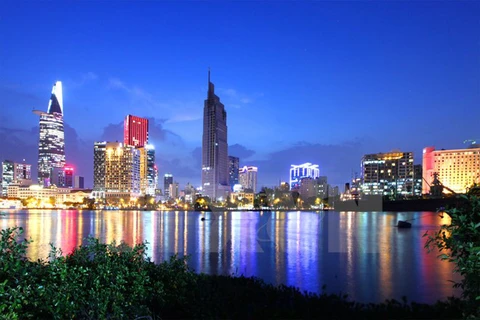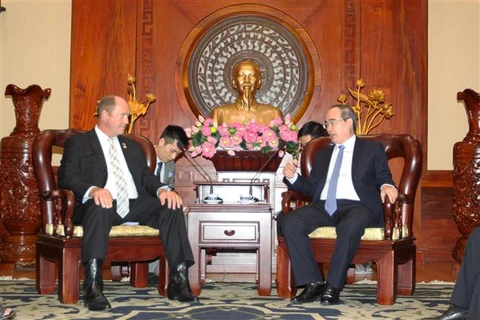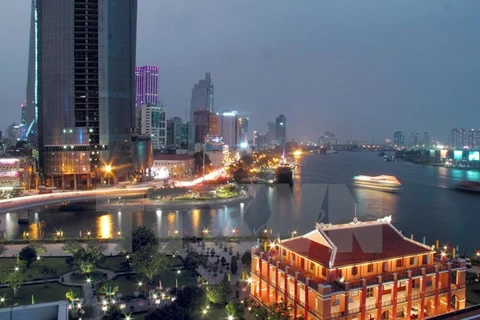 A project to turn Vietnam’s southern largest economic hub of Ho Chi Minh City into a smart city in 2017 -2020 was approved and publicly announced on November 26 (Photo: VNA)
A project to turn Vietnam’s southern largest economic hub of Ho Chi Minh City into a smart city in 2017 -2020 was approved and publicly announced on November 26 (Photo: VNA) HCM City (VNA) - A project to turn Vietnam’s southern largest economic hub of Ho Chi Minh City into a smart city in 2017 -2020 was approved and publicly announced on November 26.
“The goal of the project is to resolve the city’s existing problems such as rapid population growth, unsustainable economic growth, obstacles to making and managing master plans and poor healthcare, education and transport services and environment and public administration,” Tran Vinh Tuyen, Vice Chairman of the city People’s Committee and head of the smart city management board said.
The project aims at sustainable economic growth and moving towards a digital and knowledge-based economy, efficient urban management based on development forecasts and increasing the quality of the living and working environment and improving oversight by the public.
“The smart city aims to create a comfortable, positive, healthy and safe living environment with convenient public transportation, good healthcare, less crime and clean water and environment,” Tuyen said.
To build a smart city requires setting up a shared database and open database eco-system, according to Tuyen.
To operate a mega city like HCM City, information must be sourced from various sources to create and execute strategies.
“This is an imperative to successfully deploy the smart city’s operation centre, which will exploit all information and data to enable the authorities to achieve comprehensive management.”
[HCM City gears towards smart city]
A simulation centre to forecast socio-economic strategy should be set up along with an information security centre, he said.
The smart city will focus on four areas: local government, public, enterprises, and social organisations.
For the local government, the smart city will precisely meet development forecast needs and through building e-governance, information and data will be connected and shared to enhance the government’s operational and management efficiency.
Enterprises will have a transparent, simple and convenient environment and be provided with more information to make better business decisions.
The smart city will enable dissemination of information allowing service providers to efficiently meet demand.
The public will be provided all information needed to make the best decisions. Interaction between the public and local government will become easier and the public can oversee, manage and contribute ideas for building the city.
People can enjoy benefits such as low-priced electricity, convenient public transport, good healthcare, quality education, clean water and environment, low crime and excellent entertainment.
Workers will have everything they need to ensure they can compete in the international market such as broadband internet; low-cost green energy; opportunities to foster their education, knowledge and skills; and reasonably-priced living and working space.
The smart city will help local governments efficiently use natural resources, improve services quality for the public.
The project will be implemented by the Vietnam Post and Telecommunications Corporation after being piloted in districts 1 and 12 and the Thu Thiem Urban Area in district 2.-VNA
VNA
